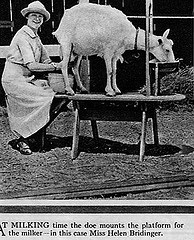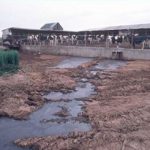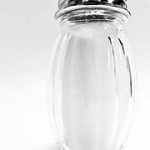Given the striking differences between commercial milk you’ll find in the grocery store, and real, fresh milk which comes from a farm, the healthy choice between the two is obvious. We want to avoid processed dairy, which is filled with pus, antibiotics, and other chemicals — and instead choose raw milk teeming with all those beneficial components inside that nourish our bodies the way nature intended.
Unfortunately, it’s just not that easy.
In the US, there are only nine states which allow the retail sale of raw milk, and even within those states, there are strict regulations (and costly licensing requirements) in place which prohibit many farmers from being able to sell their milk at a retail level.
A total of eleven states (including my own) have criminalized any and all sales of milk which has not been pasteurized. The rest of the states fall somewhere in between legal lines when it comes to their milk laws.
The Farm-to-Consumer Legal Defense Fund, an organization of farmers and consumers joined together to provide resources to protect the right of each party to contribute to safe and healthy food, illustrates the current state of raw milk legality with their Raw Milk Nation map:
As you can see, the law varies widely amongst the states. But the overall trend is that the sale of milk is one which is highly regulated by the government. Which begs the question, why do they care so much?
It’s just food
Well, sure. Except it’s food which translates to a $110 billion-dollar-per-year industry in the US. And those dairy tycoons would like to hang onto that kind of cash.
The dairy industry spends millions of dollars every year on lobbyists and supporting political candidates. Wonder why this mega-industry would fork over such a huge chunk of their profits for politics?
It pays really well.
The US government oh-so-generously has shared about 4.9 BILLION dollars in subsidies to the dairy industry since 1995.
That’s a lot of free money flooding into one industry. Can we say, “conflict of interest?”
Government agencies, such as the FDA, are working tirelessly to combat the growth of raw milk dairies and the access to them by consumers. And the reasoning behind this is simple. The fewer states in which raw dairy is accessible, and the more small dairy farms producing raw milk that get shut down or forced out of business, the greater the market share is for Big Dairy — and thus, the more they can wield their power within the political sphere. It’s like a big, milky circle of trust. But are small community farmers and Amish countrymen really that big of a threat to a multi-billion-dollar industry like commercialized dairy?
Consider this. US sales of organic food and beverages have grown from $1 billion in 1990 to $26.7 billion in 2010. This growing trend is in fact a very legitimate threat to the business of commercialized food, and the dairy industry is no exception.
In fact, as of right now, drinkers of raw dairy constitute at least 3% of the market share, that we know of. That may not seem like much, but it actually translates into 9.4 million people. And that number is only going up.
Safety first
Of course, government agencies such as the FDA would have you believe that the sole reason they spend so much time and effort fighting raw dairy is for public safety.
Let’s be real. The FDA could not care less about your health. It’s not about safety.
The government’s own data has proven that raw milk is far less likely to harm consumers than many other foods which are entirely unregulated by the government — in fact, you are 35,000 times more likely to get sick from other foods which are 100% legal in all states, than you are from raw milk!
And yet, the war rages on.
What is it good for? Absolutely nothing.
Recent events such as this week’s armed SWAT team raid on California farm co-op, Rawesome Foods, brings to light the severity of the battle between the farmers of America, and their government. Three people associated with the co-op actually went to jail for providing their community with healthy food. As insane as that sounds, situations like this are actually not uncommon in our country these days.
The documentary, Farmageddon (which I highly recommend you see if you can!), painfully depicts the ongoing struggle for America’s sustainable family farms to stay afloat amid government persecution.
Our right to choose and obtain healthy food is being threatened more and more every day. This is a very real, very threatening, and very frightening problem that we simply cannot afford to ignore.
What can we do?
As mentioned previously, there at least 9.4 million of us who are consumers — and potential advocates — of raw, healthy dairy. There IS strength in numbers, and we DO have power. We just need to use it.
One of the best ways we can exert that power is to vote with our food dollars. I believe it is absolutely crucial to completely boycott Big Dairy and only buy the most sustainable, responsibly-farmed milk you have access to — and encourage everyone you know to do the same.
In some states, where retail raw milk sales are legal, this could be as simple as choosing raw milk from your health food grocery store. For many, though, this means actually going to the farm itself to purchase your milk and dairy products. A great first step is to contact your local Weston A. Price Foundation chapter leader — they will have knowledge of where you can access clean, unprocessed raw milk.
If raw milk sales are illegal in your state, you may still be able to find a herd share — a group of people who collectively own dairy animals. If you “own” the cow, the milk is yours. However, even fully legal arrangements such as these are being targeted by the government, as recently evidenced with Rawesome, so tread carefully.
If you have even a little bit of property, consider looking into buying a small dairy animal such as a goat or sheep, or if you have the space — a family dairy cow. This may be the only way you can have access to the nourishment of healthy raw dairy, without fear of getting into trouble with the law. Think about getting a couple other families involved — you can create a small dairy-share yourself just by going in on a dairy animal or two with others, and sharing the responsibilities and costs of their care.
Speak out
By far the most important action we can take to preserve our food rights and to cut back on Big Ag’s domination of the food supply is to spread the word. Be brave. Speak up when you see your friends buying their families unhealthy, processed milk. Share a link about the outrageous harassment against small dairy farms on Facebook or Twitter. Go out and support the efforts of the real milk movement — this may mean attending a rally or protest outside a courthouse like so many in California did this week!
Go even deeper if you can. Contact your state representatives or senators, or local officials involved in any recent battles against real dairy farms in your area. Remind them that the direction our country has taken in stripping away these basic rights of the people is a far cry from what our forefathers envisioned:
“If people let government decide what foods they eat and what medicines they take, their bodies will soon be in as sorry a state as are the souls of those who live under tyranny.” Thomas Jefferson
What will you do to support real food and real dairy? What obstacles have you had to overcome so far? Let’s continue to support each other — we’re in this together!







I wish I could get my hands on raw milk. The best I can get where I live is nonhomogenized milk from cows not treated with antibiotics. I think it’s absurd, if it is such a risk then I should be able to choose whether or not I take that risk.
That map is also slightly optimistic, which is sad… Mississippi shows as “Farm Sales Legal” – but it is ONLY Farm Sales of raw GOAT milk that are legal (and only under certain other conditions). Sales of raw cow milk are totally illegal at all times.
Sad…
Raw milk is not only better for you, but it tastes better too. I am thankful to live in a state where it is obtainable at my local organic market.